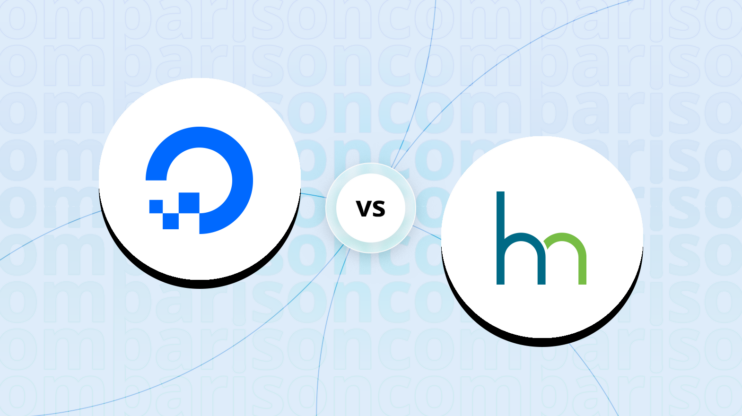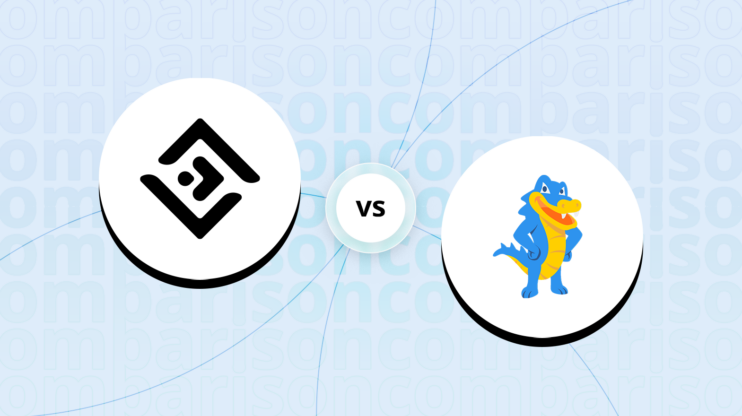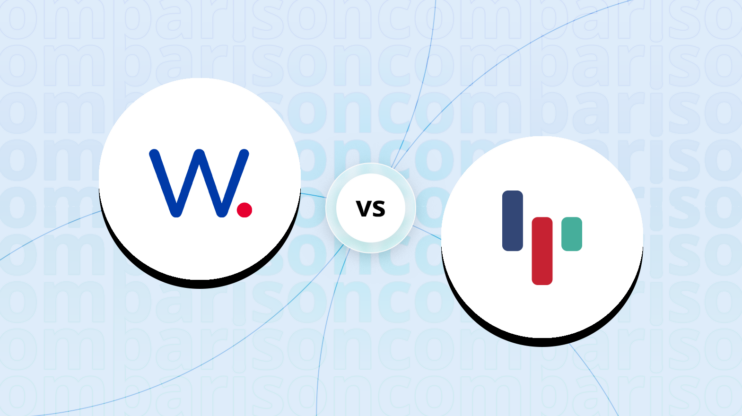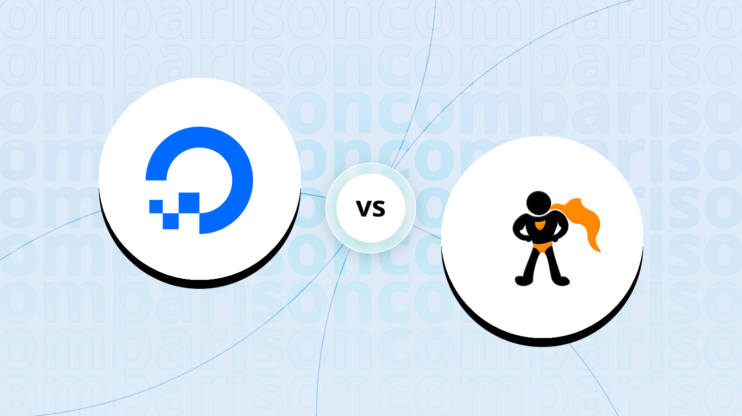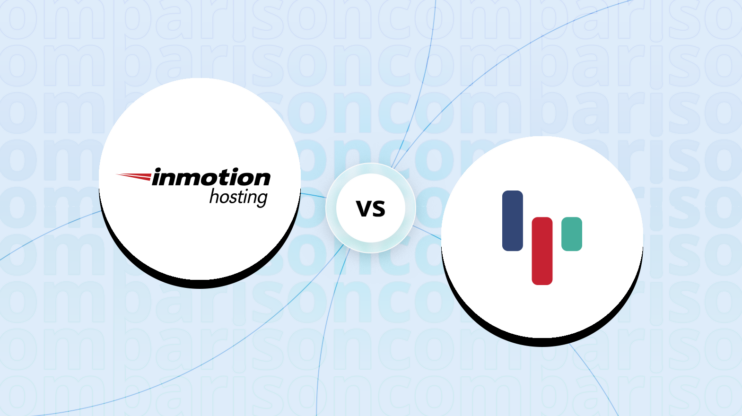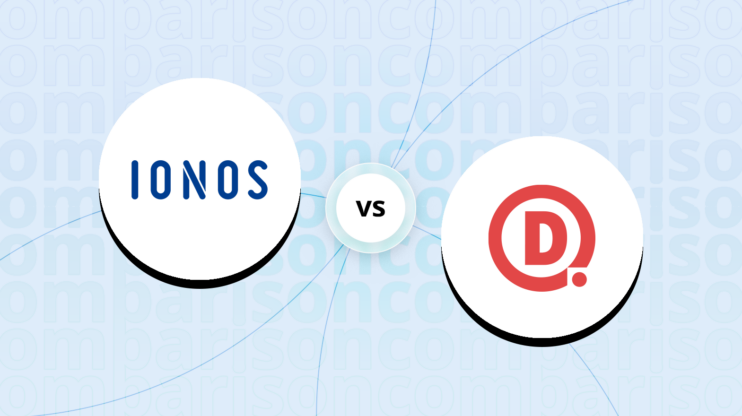Digital Ocean vs Leaseweb: Final verdict
Looking over DigitalOcean vs. Leaseweb, it’s clear why both hosts are so popular. They have both hosted millions of
websites that run on WordPress for decades, building up a loyal customer base.
-
DigitalOcean (Overall grade: 8.3)
excels with its focus on developers and small to medium-sized businesses by offering a range of advanced hosting features, a user-friendly interface, and excellent security measures. Its commitment to a 99.99% uptime SLA, multiple globally distributed data centers, and SSD storage ensures fast and reliable performance. DigitalOcean also stands out with its flexible scaling options and extensive support resources, making it an ideal choice for those seeking high performance and reliability. However, it lacks phone support, which might be a drawback for some users.
Leaseweb (Overall grade: 8.0)
provides extensive hosting options, including shared and dedicated hosting, with stronger customization capabilities and a 99.999% core uptime guarantee. It’s particularly well-suited for high-traffic websites and businesses requiring specific server configurations. Leaseweb’s customer support is robust, offering multiple contact methods, including phone support, live chat, and email, along with varied support services like incident monitoring and managed software updates. Nevertheless, high charges for excess traffic and a few user interface concerns are areas that could be improved.
 Overall grade:8.3 |
 Overall grade:8.0 |
|
|---|---|---|
| Uptime and Availability | 9.2 | 8.7 |
| Hosting Performance | 8.8 | 8.6 |
| Hosting Security | 9.1 | 8.3 |
| Price | 8.7 | 8.3 |
| Hosting Features | 6.9 | 6.8 |
| Ease Of Setup | 8.2 | 7.1 |
| User Management | 8.0 | 7.0 |
| Customer Support | 7.8 | 9.1 |
| User feedback | 4.6/5 | 2.8/5 |
Hosting types offered
Both platforms provide a variety of hosting types, each designed to meet the different needs of users.
 |
 |
|
|---|---|---|
| Shared hosting | ||
| Cloud hosting | ||
| WordPress hosting | ||
| Ecommerce hosting | ||
| VPS hosting | ||
| Dedicated hosting |
Although both offer a variety of hosting plans tailored to different needs, in certain cases, one platform may prove to be more suitable.
Detailed comparison
Uptime and availability
Evaluates the average uptime statistics, uptime guarantee and overall availability of the hosting
provider
Score Components:
- Uptime percentage (30%): evaluates the uptime statistics in given period of time
- Uptime guarantee (20%): Assesses if the platform offers an uptime guarantee and
whether the actual uptime matches the promised guarantee. - General performance (25%): Evaluates how fast is the average response time and overall
it’s stability. - Responsiveness (10%): Adaptability to different devices and screen sizes.
- Availability (25%): Reflects the total downtime and number of outages.
 9.2
9.2
 8.7
8.7
🏆 Winner
DigitalOcean: Demonstrates superior uptime and availability features.
Section 2: DigitalOcean comes out on top with its commitment to a 99.99% uptime SLA, ensuring sites are almost always available. The platform uses multiple data centers globally, providing faster content delivery and reducing latency. Tools like automated monitoring, latency alerts, and real-time notifications keep users well-informed about their site status. Additionally, customizable alerts and consistent 24/7 monitoring underscore their dedication to uninterrupted service.
Section 3: Leaseweb, though slightly behind, still offers impressive uptime with a 99.999% core uptime guarantee. Their strategic data centers ensure prime access to major markets, and their 10 Tbps network capacity allows for seamless content delivery. Daily configuration backups and 24/7 incident monitoring add layers of data security and quick problem resolution. Support options are extensive but depend on the hosting plan chosen, offering flexibility based on user needs.
Which one has better hosting performance?
Score Components:
- Hosting speed (30%): This includes SSD quality, Load times, PageSpeed score ranges,
additional information on website speed, built-in plugins for performance enhancement, available caching
methods, and CPU/RAM options - CDN (20%): Considers whether CDN is available or not, whether it’s free or paid, and
the quality of the CDN service - Available data centers (30%): Evaluates the number of data centers and their locations
globally. - Scalibility (20%): Looks at whether elastic scaling is available, the process required
to scale (manual upgrade vs. automatic scaling), the presence of dedicated servers, and the costs
associated with scaling.
 8.8
8.8
 8.6
8.6
🏆 Winner DigitalOcean: Efficient and reliable hosting with extensive features and developer-friendly tools.
When comparing the general performance of DigitalOcean and Leaseweb, DigitalOcean stands out with its 99.99% uptime SLA, 14 globally distributed data centers, and SSD storage, contributing to faster load times and efficient operations. DigitalOcean also integrates a CDN for enhanced website performance and provides various caching methods. Leaseweb, on the other hand, offers powerful compute capabilities with up to 64 CPU cores, high IOPS, and a 99.999% core uptime, backed by one of the largest global networks, but does not mention the use of SSDs. Leaseweb’s CDN access and bandwidth options (up to 100Gbps unmetered) are robust, yet the specifics on caching methods are not detailed.
Website Speed
DigitalOcean employs several performance-enhancing features like SSD storage, CDN integration, and various caching mechanisms. These features ensure that content retrieval and page loading times are optimized, providing a speedier end-user experience. Leaseweb, with its high-performance servers and top-tier hardware, aims to deliver fast website speeds, but lacks specific mentions of SSD storage and caching details, which are critical for accelerating page loads.
Scalability
DigitalOcean offers flexible scaling with Droplets that can be easily adjusted for more resources, plus load balancing and horizontal scaling options. Upgrades can happen automatically based on demand. Leaseweb provides configurable servers and GPU support, but the scaling specifics are less clear. The cost to scale with DigitalOcean starts at $4 per month, while Leaseweb emphasizes attractive pricing and competitiveness without detailed pricing for scaling.
Which one has better security features?
and regulatory requirements
Score Components:
- Technical security measures (40%): This includes encryption, firewalls, DDoS
protection, secure configurations, server monitoring, access control and availability of security addons
(e.g Sitelock security). - Operational security measures (30%): Encompasses data privacy, backups and data
redundancy. - Compliance and certifications (20%): Adherence to legal and regulatory requirements
(e.g., GDPR, HIPAA) and possession of certifications (e.g., ISO 27001, SOC 2). - Business and reliability (10%): Factors in the provider’s reputation, uptime
guarantees, and customer support.
 9.1
9.1
 8.3
8.3
🏆 Winner DigitalOcean: Offers a comprehensive suite of security features and strong industry compliance standards.
Both DigitalOcean and Leaseweb, have notable differences in their approaches to technical and operational
security, as well as in their compliance with regulations.
Technical security measures:
DigitalOcean and Leaseweb both offer SSL certificates to secure data transmission. DigitalOcean enhances server security by supporting various PHP versions, provides DDoS protection, and includes firewalls. Leaseweb also includes DDoS IP protection with scrubbing centers worldwide and offers managed cyber security such as SIEM SOC services. DigitalOcean extends data security with features like automatic backups, data encryption at rest and in transit, SSH access, and two-factor authentication.
Operational security measures:
DigitalOcean ensures robust operational security with features like 24/7 monitoring via their Security Operations Center (SOC), penetration testing in collaboration with Northwave, and customizable security profiles. Leaseweb also includes 24/7 monitoring through their SOC team and offers penetration testing. Moreover, DigitalOcean prioritizes data safety with tools like automatic backups and manual snapshots, while Leaseweb uses Acronis Backup solutions supported by customizable rules and dashboards.
Compliance and certifications:
DigitalOcean demonstrates strong adherence to regulatory standards with a host of certifications, including GDPR, PCI-DSS, SOC 2 Type II, SOC 3 Type II, ISO/IEC 27001:2013, CSA STAR Level 1, and APEC CBPR PRP. Leaseweb complies with GDPR and PCI standards and follows a comprehensive cookie policy. While both providers meet GDPR and PCI compliance standards, DigitalOcean holds a wider array of certifications.
 |
 |
|
|---|---|---|
SSL certificate |
Yes |
Yes |
Additional security features |
DDoS protection, auto backups, data encryption, SSH, 2FA |
DDoS IP protection, 24/7 SOC, penetration testing |
PHP versions |
Various |
Not specified |
GDPR compliance |
Yes |
Yes |
HIPAA compliance |
Not specified |
Not specified |
PCI compliance |
Yes |
Yes |
Hosting features
Score Components:
- Domains (20%): Assesses the availability of a free domain, domain purchase options, and
pricing - Email (15%): Considers if the provider offers full email hosting, or is reselling
third-party service, and if the email is only transactional or not - Website builder (15%): Checks if website builder is available, and it’s user
friendliness and overall the level of customization allowed. - Staging environment (20%): Determines if a staging environment is available, allowing
for testing changes before going live. - FTP & SFTP accounts (10%): Evaluates if and how easily users can access FTP and
SFTP accounts - Git and SSH access (20%): Assess whether Git is integrated into the hosting service and
if SSH access is provided
 6.9
6.9
 6.8
6.8
🏆 Winner DigitalOcean: Provides a wide range of advanced hosting features suitable for developers and businesses.
Both DigitalOcean and Leaseweb offer robust hosting solutions catering to diverse user needs. DigitalOcean excels in providing extensive security features such as DDoS protection, firewalls, SSL certificates, and two-factor authentication. Its managed WordPress hosting and Platform as a Service (App Platform) make it an ideal option for those seeking high performance and reliability with 99.99% uptime. DigitalOcean also supports a range of hosting types, including dedicated, shared, and VPS hosting, which adds to its versatility. In contrast, Leaseweb’s hosting plans are structured more simplistically, with Small, Medium, and Large Linux plans, each with SSD storage and MySQL databases, making it a straightforward option for those needing essential web hosting services without the complexities.
Leaseweb provides easily managed services via their customer portal, ensuring user-friendliness. Their offering includes comprehensive VPS hosting with a variety of operating systems and always-on services with firewall protection. Leaseweb’s added advantage includes pre-configured web control panels for running and automating websites efficiently. Where Leaseweb falls slightly behind is the availability of additional services like object storage and content delivery networks, which DigitalOcean offers. Therefore, Leaseweb caters well to businesses looking for essential and easily manageable hosting options, while DigitalOcean supports those who require advanced and scalable solutions.
 |
 |
|
|---|---|---|
Free domain |
No |
No |
Free SSL |
Yes |
No |
Email hosting |
Yes |
Yes |
Website builder |
No |
No |
Staging environment |
No |
No |
FTP & SFTP account |
Yes |
Yes |
Git and SSH access |
Yes |
Yes |
Free backup |
Yes |
No |
Money back guarantee |
No |
No |
a location.
As a result in rare cases the features mentioned here can differ from the ones you see on their websites.
Email services:
DigitalOcean offers basic email hosting services, which are sufficient for standard web hosting needs. Leaseweb, on the other hand, provides more extensive support for email hosting, with up to 250 mailboxes available in their Large Linux plans. Both providers can support transactional email capabilities but specifics on limits and additional email-related services like campaign management and reselling third-party services are not clearly outlined in the given context. For more detailed insights, potential customers should contact their support teams.
Price
Score Components:
- Plan value (40%): What each pricing tier offers.
- Transparency and clarity (30%): Clearness of pricing structures.
- Flexibility of plans (20%): Range of options to suit different budgets.
- Hidden costs (10%): Additional expenses not included in the plan.
 8.7
8.7
 8.3
8.3
🏆 Winner DigitalOcean: DigitalOcean scores slightly higher overall, mainly due to the robust features included in their plans and the transparency of what’s included.
Evaluating the pricing of plans among various hosting providers can be complex due to their differing pricing and renewal strategies. Additionally, certain plans require annual commitments, which adds to the difficulty of making comparisons. The prices listed are based on monthly commitments; plans requiring annual commitments are indicated. Additionally, although some providers offer identical plans for WordPress and shared hosting, we have created separate tables for each to enhance clarity.
Both DigitalOcean and Leaseweb offer competitively priced hosting plans with varying features and advantages. DigitalOcean stands out with plans starting at $4/month for basic VPS hosting, including features like automatic backups and DDoS protection. Leaseweb’s plans start at €5.99/month (approximately $6.30) for small web hosting, providing SSD storage and multiple MySQL databases. DigitalOcean’s App Platform and Cloudways managed solutions provide additional flexibility, while Leaseweb offers a variety of dedicated servers with different configuration options. Pricing and features such as support options, traffic allowances, and included software vary, making each provider suitable for different needs.
 |
 |
|---|---|
|
Basic Droplet $4/month
1-click WordPress installation, free SSL certificate, automatic backups, DDoS protection, 1 website, scalable storage, 24/7 support. Value for price:8.7
|
N/A
|
|
Cloudways Managed Hosting Free $100 credits
Managed infrastructure, no plugin restrictions, no visitor cap, built-in DDoS protection. Value for price:8.7
|
N/A
|
 |
 |
|---|---|
|
Website Hosting $4/month
1-click apps for WordPress, Ghost, 99.99% uptime SLA, globally distributed data centers, 1 website, scalable storage, basic support. Value for price:8.7
|
Small – Linux €5.99/month
SSD 25GB, MYSQL 5, MAILBOXES 10, DOMAINS 1, 1 day delivery. Value for price:8.3
|
|
Premium Shared CPU Droplet $7/month
Enhanced memory performance, NVMe SSDs, 1 website, scalable storage, basic support. Value for price:8.7
|
Medium – Linux €8.99/month
SSD 100GB, MYSQL 10, MAILBOXES 50, DOMAINS 1, 1 day delivery. Value for price:8.3
|
|
N/A
|
Large – Linux €10.99/month
SSD 250GB, MYSQL 50, MAILBOXES 250, DOMAINS 1, 1 day delivery. Value for price:8.3
|
 |
 |
|---|---|
|
Basic Droplet $4/month
Simple and reliable cloud hosting, automatic backups, 1-click installs, 1 website, scalable storage, 24/7 support. Value for price:8.7
|
Public Cloud N/A
Scalability on demand, advanced API automation, robust data sovereignty, 1 website. Value for price:8.3
|
|
App Platform Basic $5/month
Transparent pricing, 14 globally distributed data centers, automatic scaling, 1 website, basic support. Value for price:8.7
|
Elastic Compute Cloud N/A
Flexible compute resource pools, powerful API, 1 website. Value for price:8.3
|
|
Managed VPS (Cloudways) Pricing not mentioned*
Optimized for speed & performance, 24/7 support, automatic vertical scaling. Value for price:8.7
|
VMware vCloud N/A
Flexible and scalable resource pools, seamless public and private connections, 1 website. Value for price:8.3
|
As a result in rare cases the prices displayed here can differ from the ones you see on their websites.
Enterprise plans
For enterprises, DigitalOcean offers dedicated CPU droplets starting at $42/month with advanced features such as DDoS protection and optimized performance for higher scalability. Leaseweb provides a broader range of dedicated server options, including high-bandwidth servers with extensive traffic allowances and specialized server configurations. Both providers cater to different enterprise needs, with DigitalOcean focusing on scalable cloud applications and Leaseweb offering more specialized hardware configurations for intensive usage.
Digital Ocean vs Leaseweb: Ease of setup
platform.
Score Components:
- Site migration (25%): Assesses whether the provider offers tools for site migration,
either automated or manual, and whether these services are free or require a fee. - Admin panel usability (35%): Evaluates the type of admin panel provided, such as the
standard cPanel or a custom solution, focusing on its accessibility and user-friendliness for both
technical and non-technical users. - Setup features (20%): Examines the availability and ease of use of various setup
features, including FTP accounts, file managers, email account setup, PHPMyAdmin, and easy CDN
configuration. - Help center quality (20%): Measures the quality and accessibility of the provider’s
help center resources, including articles and tutorials.
 8.2
8.2
 7.1
7.1
🏆 Winner DigitalOcean: Offers flexible and user-friendly hosting solutions with a wide range of support options.
DigitalOcean provides an intuitive and versatile user experience with its custom solutions like Droplets and 1-Click Apps. These features cater to both technical and non-technical users by simplifying the process of creating and managing websites. Cloudways, a service by DigitalOcean, further enhances user-friendliness by offering managed hosting services, which means users don’t have to worry about infrastructure details. The platform is highly accessible, allowing users to deploy a variety of applications and solutions with ease.
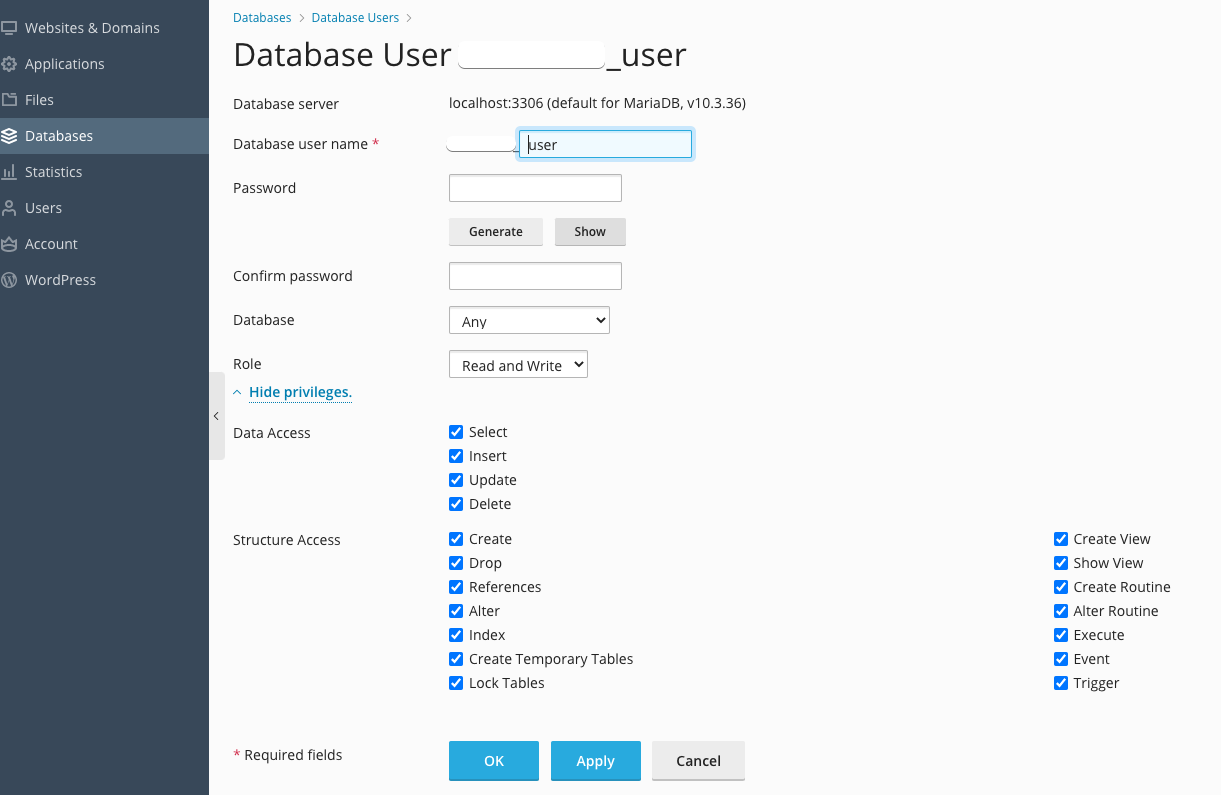
Leaseweb offers a more traditional approach with its delivery time of one day for all hosting plans. It has a structured Quick Start Guide to help users get started. The customer portal and API management options are well-documented, making it easier for users to manage their hosting services. However, the more technical requirements might pose challenges for non-technical users. While Leaseweb’s admin management solutions are detailed, they may require a steeper learning curve compared to DigitalOcean’s offerings.
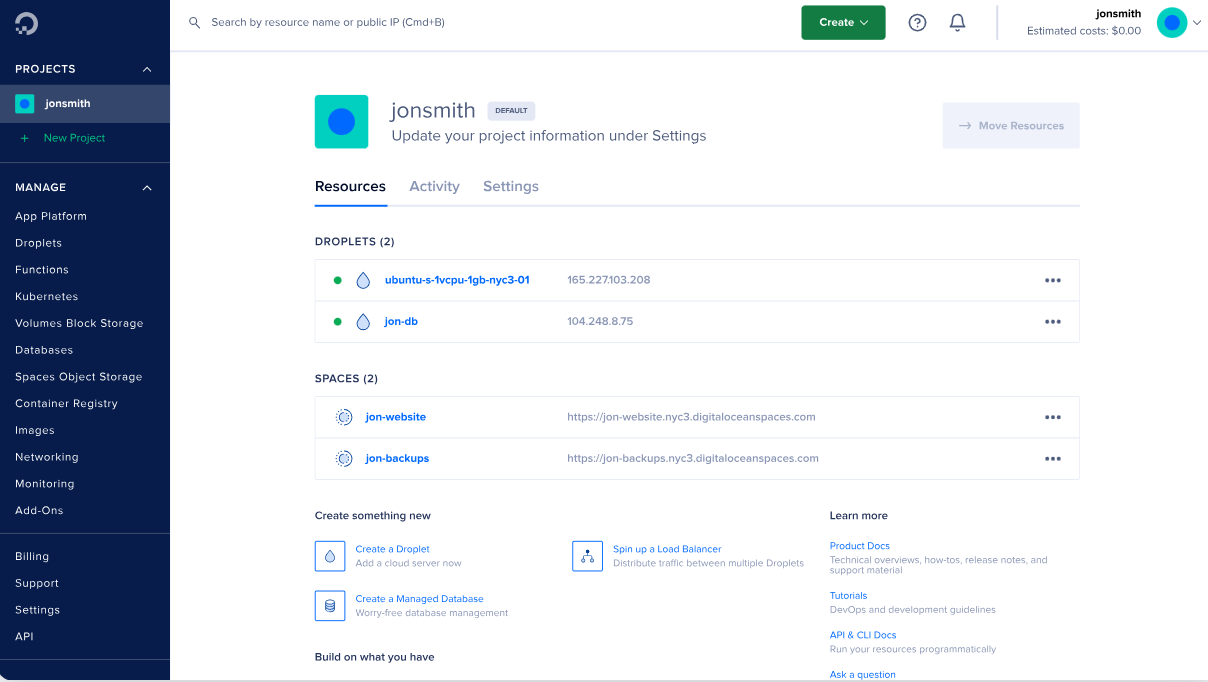
DigitalOcean provides robust migration tools, particularly through Cloudways, which offers automated migration for WordPress and other applications. These services are usually hassle-free and come as part of the managed hosting package. Leaseweb, on the other hand, doesn’t specifically highlight automated migration tools, which suggests that users might need to undertake manual migration or seek additional support, potentially incurring extra costs.
The platforms provide extensive knowledge bases filled with guides, how-to articles, and instructional content. DigitalOcean offers a wide range of resources alongside 24/7 chat and phone support. Leaseweb also boasts a detailed help center with an intuitive search function and around-the-clock support via live chat, phone, and ticketing, ensuring comprehensive user support.
User management
accessibility.
Score Components:
- Role customization (40%): Flexibility in creating and defining user roles and
permissions. - Ease of management (30%): User interface and tools for managing users.
- Access control (20%): Effectiveness of access control measures for different user
levels. - Scalability (10%): Ability to manage a growing number of users efficiently.
 8.0
8.0
 7.0
7.0
🏆 Winner DigitalOcean: DigitalOcean offers a more comprehensive and user-friendly approach to user management and user roles.
DigitalOcean stands out with its clear and structured user role and permission management system. It offers predefined roles such as Owner, Biller, and Member, each with distinct access permissions. Team owners can invite, manage, and remove members efficiently without any limitations on the number of team members or roles. In comparison, Leaseweb’s approach to user management is less defined. The information suggests that Leaseweb relies on control panels like Plesk, cPanel, and Vesta for user management, leading to varied experiences depending on the chosen control panel. While Leaseweb likely supports similar functionalities, the user management specifics are not as transparent as those provided by DigitalOcean.
DigitalOcean provides a more intuitive interface for managing users. The platform offers a straightforward “Invite Members” button, ensuring seamless addition of new members. All members can view the membership table, roles, and invitation statuses, adding transparency. Team owners have extra visibility into the sign-in methods of each user. Leaseweb, on the other hand, depends on various control panels and a customer portal, which could result in a less uniform user management experience. This variability might make the user interface less predictable depending on the control panel in use.
When it comes to access control measures, DigitalOcean excels with its ability to allow team owners to manage roles, including full access, billing-only access, and resource-only access. This segmentation is highly effective for ensuring the right levels of access are granted to the appropriate users. DigitalOcean ensures smooth handling of a growing number of users due to its no-limit policy on team members and role assignments. While Leaseweb’s exact capabilities in access control are less defined, its reliance on multiple control panels suggests potential variability in managing large teams efficiently.
DigitalOcean user roles table:
| Role | Description | Access highlights |
|---|---|---|
| Owner | Full access to all settings. | Can manage shared resources, billing information, and team settings. |
| Biller | Access to billing information only. | Can view and manage billing details but cannot access shared resources or settings. |
| Member | Access to shared resources. | Can work with shared resources but cannot access billing information or settings. |
Customer support
hosting provider.
Score Components:
- Support communication channels (30%): Measures the variety of customer support types
provided (live chat, chatbot, email, phone, etc.) - Availability (20%): Assesses the availability hours for each channel, including 24/7
support options. - Technical support quality (30%): Assesses whether the provider offers comprehensive
technical support, including hardware upgrades (e.g., HDD to SSD), software installations, and web
server configuration changes. - Enterprise support (20%): Checks if there are dedicated or priority support services
for enterprise-level customers.
 7.8
7.8
 9.1
9.1
🏆 Winner
Leaseweb: Offers extensive customer support and multiple service-level agreement options.
 |
 |
|
|---|---|---|
Phone support |
||
Live chat support |
||
Chatbot |
||
Email/ticket support |
||
Enterprise support (dedicated agent, priority support) |
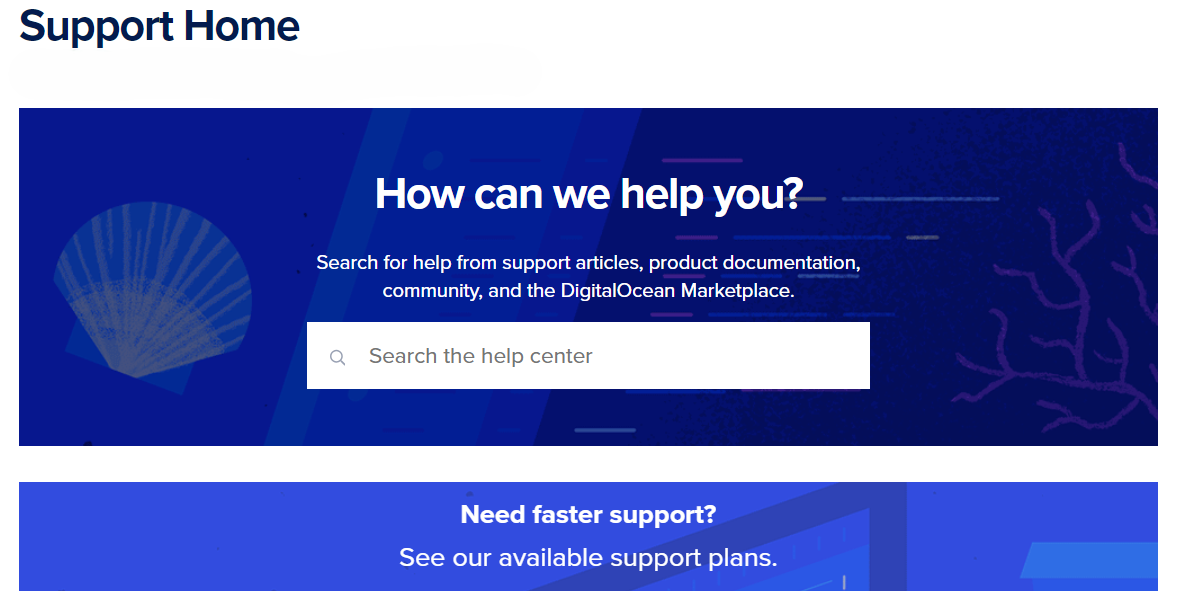
DigitalOcean provides comprehensive customer support options that include email support, 24/7 online ticketing, and, for premium customers, live chat. Additionally, DigitalOcean has a community forums and a wide array of tutorials and documentation, which can be very helpful for problem-solving and learning. However, DigitalOcean lacks phone support, which may inconvenience some users.
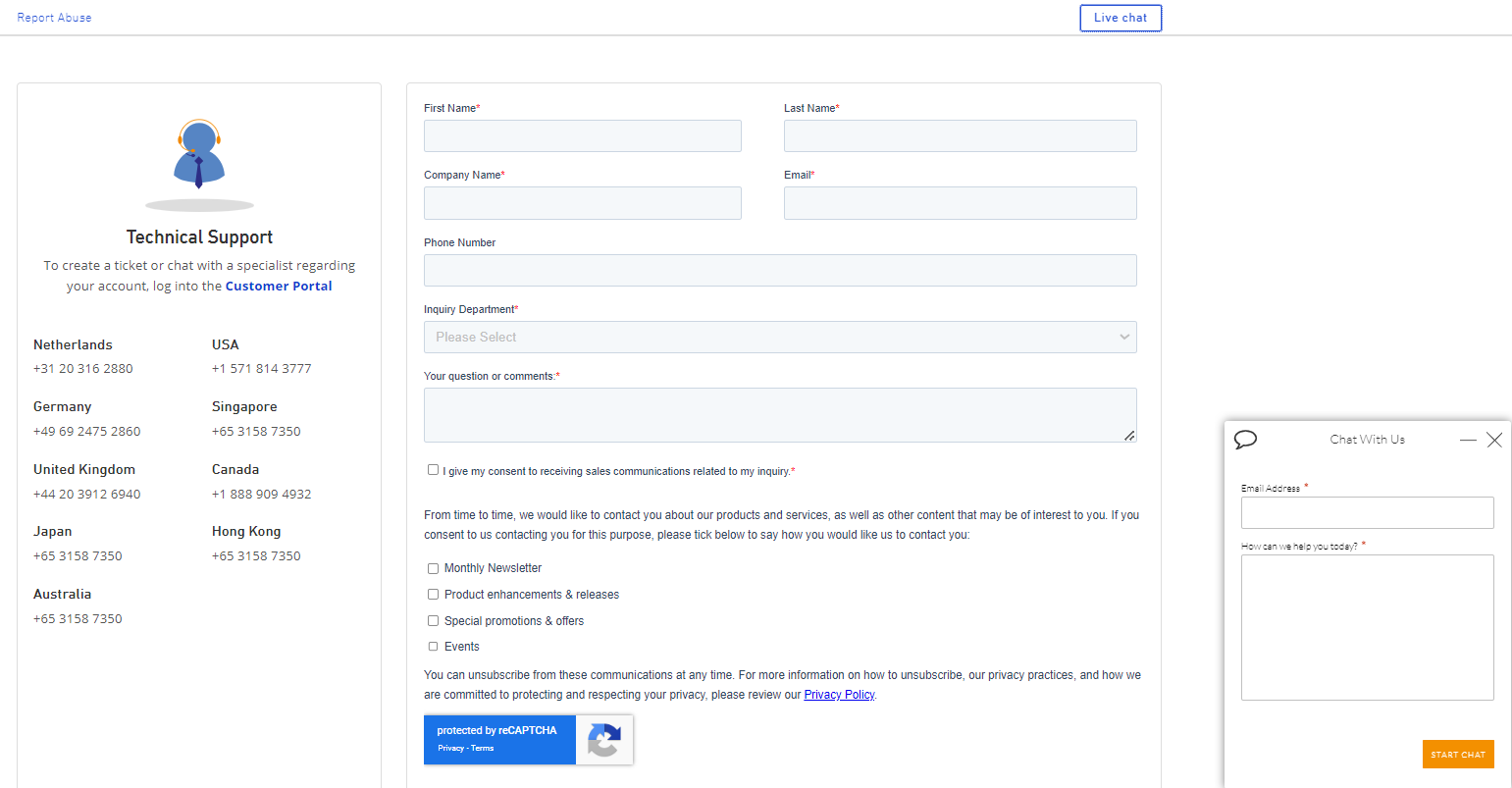
Leaseweb, on the other hand, offers more varied contact methods, including phone support, live chat, email, and even fax. They provide 24/7 support, and their response times can be as quick as 30 minutes, depending on the service level agreement. Leaseweb also includes additional support services like remote hands, incident monitoring, and managed software updates. This broad range of support options makes Leaseweb a strong choice for customers needing varied and rapid support.
Digital Ocean vs Leaseweb: User feedback
DigitalOcean consistently garners praise for its simplicity, user-friendly interface, and transparent pricing, making it ideal for both beginners and experienced developers. Users appreciate the straightforward setup, reliable performance, and excellent customer support, highlighting features like one-click deployment and robust documentation. However, there are some minor criticisms, including a limited variety of server configurations compared to larger providers and occasional slow customer support response times. Despite these drawbacks, DigitalOcean is highly regarded for its cost-effectiveness, ease of use, and overall reliability, particularly for small to medium-sized businesses and startups.
The hosting provider excels in offering comprehensive services with impressive billing and contract flexibility, making it easier for businesses to manage their finances. Users appreciate the choice between “Volume” and “Premium” network options, which cater to different performance needs, and find the support and user interface to be intuitive and straightforward. However, customers have raised concerns about high charges for excess traffic, restrictive password policies, inconvenient login procedures, limited payment gateways, and a lack of variety in available system distributions. Overall, while the service is robust and user-friendly, there are areas in need of improvement to enhance the customer experience.
Digital Ocean vs Leaseweb: FAQ
Which platform is better suited for hosting WordPress websites?
DigitalOcean is a better choice for hosting WordPress websites due to its managed hosting solution, robust features, 24/7 support, and free site migration. Its flexibility and high performance make it ideal for WordPress, whereas Leaseweb does not specifically highlight any specialized WordPress hosting services.
Which hosting service offers better security features?
Both DigitalOcean and Leaseweb offer strong security features. DigitalOcean provides DDoS protection, automatic backups, data encryption, firewalls, and two-factor authentication. Leaseweb also offers DDoS IP protection, 24/7 SOC, and managed cybersecurity services, but DigitalOcean’s security features are more comprehensive and detailed.
Which service is more suitable for hosting a high-traffic website?
Leaseweb is more suitable for hosting high-traffic websites as it provides extensive customization options, robust high-performance servers, and a 99.999% core uptime guarantee. Its infrastructure is geared towards high-traffic and high-demand scenarios, making it a better choice for such requirements compared to DigitalOcean.
Which platform offers better customer support?
Leaseweb offers better customer support with multiple contact methods, including phone support, live chat, email, and additional services like incident monitoring and managed software updates. DigitalOcean, while comprehensive in its support resources, lacks phone support which might be a downside for some users.
What are the major differences in pricing and value between DigitalOcean and Leaseweb?
DigitalOcean offers competitively priced plans starting at $4/month, with features like automatic backups and DDoS protection, making it cost-effective for small to medium-sized businesses. Leaseweb’s plans start at €5.99/month and offer SSD storage but may incur high charges for excess traffic. DigitalOcean provides more transparent and flexible pricing overall.
The making of this blog
We followed a clear, step-by-step process to write and research this article.









